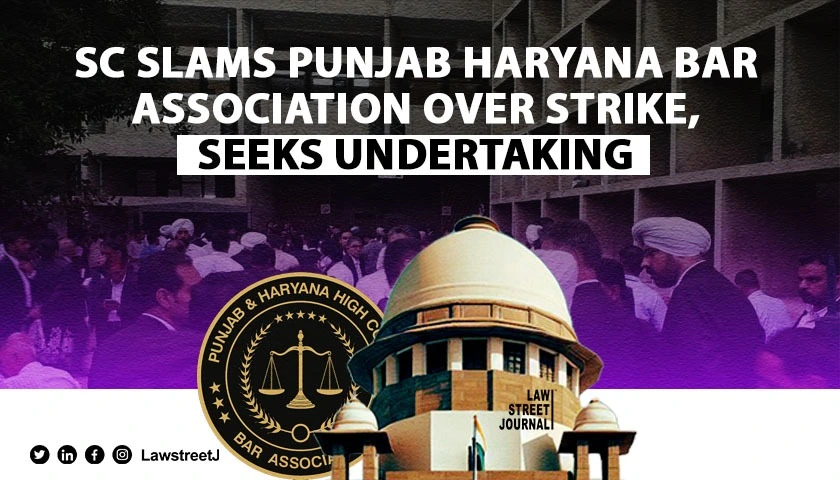New Delhi: The Supreme Court took a strong stance against the Punjab and Haryana High Court Bar Association for their strike in July 2024, which disrupted thousands of litigants. The court, presided over by Justice Abhay Oka and Justice A.G. Masih, has directed the association to submit an unconditional undertaking by December 8, 2024, with the next hearing scheduled for December 13, 2024.
Lawyers’ Strike Declared Illegal: Supreme Court Reiterates Stance
The court emphasized that lawyer strikes have already been deemed illegal by a reportable judgment of the Supreme Court. The bench expressed dismay at the association’s hesitation to give an undertaking to abide by the law. Justice Oka remarked, “Thousands of litigants are affected because lawyers go on strike. You are aggravating the contempt by defending them.”
Bar Association’s Hesitation Sparks Supreme Court’s Ire
Jasdev Singh Brar, vice president of the Punjab and Haryana High Court Bar Association, faced sharp criticism for delaying the undertaking. Despite repeated questioning, Brar hesitated to make a clear statement, prompting the bench to consider issuing contempt notices and seeking disciplinary action.
“What troubles us is the hesitation. A dozen times we asked him (Brar), and there was great hesitation on his part to make a statement,” said Justice Oka.
Supreme Court Grants Time for Undertaking Submission
The acting vice president and acting joint secretary of the Bar Association ultimately assured the court of their intent to submit an unconditional undertaking to abide by the law. The court granted time until December 8, 2024, to file the undertaking, and the matter will be reviewed on December 13, 2024.
Lawyer Strikes Impact Thousands of Cases, Says Supreme Court
The bench underlined the adverse impact of lawyer strikes, highlighting that a minimum of 4,000 to 5,000 cases in the Punjab and Haryana High Court were affected. Justice Oka stated, “What is the fault of litigants who come to court on a particular day? You are holding them at ransom.”
Supreme Court on Justifications for Strikes
The counsel for the Bar Association attempted to justify the strike, stating it was a protest against delegating rent controllers’ powers to executive magistrates under the Rent Act. However, Justice Oka dismissed the justification, stating, “No ground, no ground. There are other ways to protest. Bar associations can pass strong resolutions on genuine issues, which can be very effective without resorting to strikes.”
Bar Association Ordered to Follow Supreme Court Judgments
Citing prior rulings on lawyer strikes, the court warned that the rule of law must prevail. Justice Oka pointed to a similar instance in Odisha, where 40 lawyers were suspended for engaging in strikes, and reminded the Bar Association of their professional obligations.
This case highlights the judiciary’s growing intolerance for disruptions in the justice delivery system caused by strikes, reaffirming its stance on protecting litigants’ rights.















